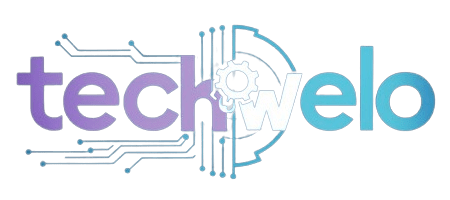Artificial Intelligence General Purpose Technology has swiftly transitioned from a specialized innovation to a powerful catalyst for change across multiple industries. As a general-purpose technology (GPT), AI is fundamentally reshaping business processes, fostering innovation, and fueling growth.
What is General Purpose Technology?
General-purpose technology (GPT) refers to technology that has broad applicability and can significantly impact a wide range of industries and sectors. These technologies are characterized by their ability to improve over time, leading to further innovations and economic productivity gains.
Examples of general-purpose technologies include:
- Electricity: Revolutionized industries, homes, and transportation.
- The Internet: Transformed communication, commerce, and information access.
- Artificial Intelligence (AI) can potentially influence various fields, such as healthcare, finance, manufacturing, and more.
General-purpose technologies (GPTs) frequently spur complementary innovations and have the potential to drive economic growth by facilitating new business models, enhancing efficiencies, and creating entirely new industries.
AI as a New General-Purpose Technology
 Artificial Intelligence (AI) is gaining recognition as a new General-Purpose Technology due to its broad applicability and potential to revolutionize various sectors, including healthcare, finance, transportation, and manufacturing. AI’s ability to learn and adapt, its ability to automate intricate tasks, and its ability to process extensive data position it as a significant driver of innovation and productivity. As AI advances, it is anticipated to generate new opportunities, disrupt established industries, and transform our daily lives and work environments.
Artificial Intelligence (AI) is gaining recognition as a new General-Purpose Technology due to its broad applicability and potential to revolutionize various sectors, including healthcare, finance, transportation, and manufacturing. AI’s ability to learn and adapt, its ability to automate intricate tasks, and its ability to process extensive data position it as a significant driver of innovation and productivity. As AI advances, it is anticipated to generate new opportunities, disrupt established industries, and transform our daily lives and work environments.
The Impact of AI on Different Sectors
Artificial Intelligence (AI) is reshaping various sectors by introducing new efficiencies, enhancing decision-making processes, and enabling innovative solutions. Here’s a look at how AI is impacting different industries:
1. Healthcare: Revolutionizing Diagnosis and Treatment
In healthcare, AI analyzes medical data, predicts patient outcomes, and assists in surgical procedures. By rapidly and accurately processing large volumes of data, AI is revolutionizing how healthcare professionals diagnose and treat patients.
2. Finance: Enhancing Decision-Making and Risk Management
In the financial sector, AI is used for algorithmic trading, fraud detection, and personalized banking experiences. Artificial Intelligence General purpose technology assists financial organizations in making better decisions and effectively managing risks by evaluating market trends and client behavior.
3. Manufacturing: Automating Production and Supply Chains
AI is revolutionizing manufacturing by automating production lines and optimizing supply chains. Smart factories, where AI-driven machines and robots perform tasks with precision, are becoming more common. These factories reduce costs and increase efficiency.
The Future of AI General-Purpose Technology
 As artificial intelligence (AI) continues to advance, its role as a general-purpose technology is expected to grow, with far-reaching implications for the future. The ongoing development of AI will likely lead to several key trends and transformations:
As artificial intelligence (AI) continues to advance, its role as a general-purpose technology is expected to grow, with far-reaching implications for the future. The ongoing development of AI will likely lead to several key trends and transformations:
1. Enhanced Automation
AI will further automate complex tasks across industries, reducing the need for human intervention in routine and even sophisticated processes. This will increase efficiency and productivity while reshaping the job market.
2. Integration with Emerging Technologies
AI will increasingly integrate with other cutting-edge technologies, such as quantum computing, the Internet of Things (IoT), and blockchain. These synergies will unlock new capabilities, driving innovation in data processing, cybersecurity, and decentralized systems.
3. Ethical and Regulatory Challenges
As AI’s influence grows, so will concerns about its ethical implications, including bias, privacy, and decision-making transparency. In the future, more efforts will be made to develop frameworks and regulations that ensure AI is used responsibly and equitably.
4. AI-Powered Innovation
AI will spur innovation and lead to the development of new goods, services, and business strategies. Industries will harness AI to tackle complex challenges, ranging from climate change to healthcare, pushing the limits of what can be achieved.
5. Global Competitiveness
Countries and companies that lead in AI development and deployment will gain significant competitive advantages. AI will be critical to economic growth, global influence, and technological leadership.
6. Human-AI Collaboration
The future will likely see a shift toward more collaborative interactions between humans and AI, where human capabilities are enhanced by AI rather than replaced. This partnership could lead to new forms of work and creativity, fostering a more adaptive and resilient society.
The future of AI as a General-Purpose Technology holds immense potential. It promises to reshape industries, economies, and daily life in ways we are only beginning to understand.
7. Preparing for the AI-Driven Future
To stay competitive in an AI-driven world, businesses must invest in AI technologies and upskill their workforce. Understanding and leveraging AI’s potential as a GPT Embracing artificial intelligence as a general-purpose technology will be essential for companies aiming to thrive. By understanding and integrating AI, businesses and industries can achieve new heights of innovation, efficiency, and growth. As AI evolves, its impact on the global economy and society will only become more profound.
Conclusion
Artificial Intelligence general purpose technology is more than just a trend; it’s a pivotal force that will shape the future of industries worldwide. Its broad applicability and transformative power make it essential for businesses and societies to understand and leverage AI’s potential. The future is AI-driven, and the possibilities are limitless.














